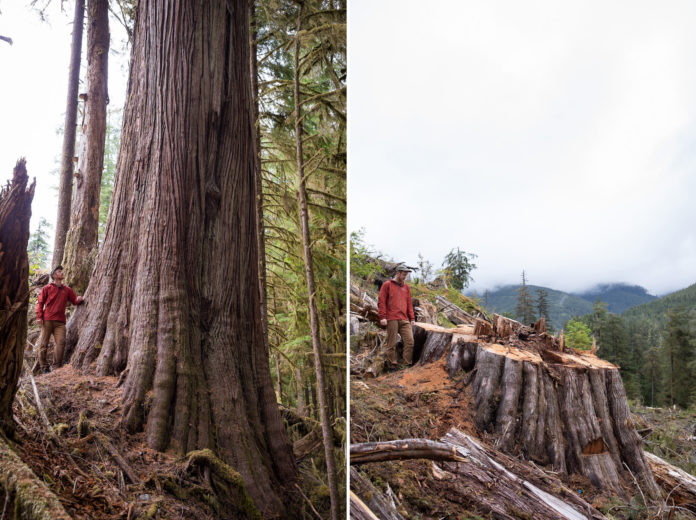Logging of old-growth and ancient forest groves has reached an all time low in BC history.
Old-growth trees are defined as being older than 140 to 250-years-old on Vancouver Island, depending on the kind of forest.
The province continues to implement the Old Growth Strategic Review and the latest numbers indicate that logging of the ancient forests has decreased to the lowest level on record as a result.
The Ministry of Forests says that logging of old-growth has declined by 42%. The 65,000 hectares of land containing old-growth forests was reduced to 38,300 hectares between 2015 and 2021.
In 2021, only 0.3% of the estimated 11.1 million hectares of old-growth forests were being actively logged.
“Our vision for forestry is one where we better care for our most ancient and rarest forests, First Nations are full partners in sustainable forest management and communities and workers benefit from secure, innovative jobs for generations to come,” said Katrine Conroy, Minister of Forests.
“The latest numbers show that B.C. is on the right track as we work to develop and implement new long-term solutions for better managing, preserving and sharing the benefits of our forests.”
About a year ago, the province released the findings of the independent Old Growth Technical Advisory Panel.
That panel helped identify four million hectares of ancient forests that were most at-risk of biodiversity loss.
According to the Ministry of Forests, 80% of those at-risk old-growth groves are permanently protected, covered by deferrals or not economic for logging companies to harvest.
For context, this area is equivalent to over 23,200 Beacon Hill Parks and by contrast, 0.23% of the 4 million hectares identified by the panel were logged in the past year.
“B.C.’s forests are part of our natural heritage, and British Columbians care deeply about them and the multitude of social, ecological, and cultural benefits they provide,” said Josie Osborne, Minister of Land, Water and Resource Stewardship.
“Through the actions underway, we are making progress on developing an effective old-growth management system, one that prioritizes ecosystem health and community resiliency, so B.C.’s forests will continue to sustain our communities and ecosystems for generations to come.”
The province is working with First Nations and other partners to develop long-term solutions for forest management and protection strategies for old-growth groves. In the meantime, logging deferrals remain in place as a temporary measure to protect the forest’s ecosystems.
BC’s forests provide essential benefits like clean air, clean water, carbon storage, wildlife habitats, recreation, conservation of biodiversity and timber supply.
The province says that the prioritization of ecosystem conservation will be central to them moving forward.
To achieve this prioritization, the province is partnering with First Nations in developing landscape planning and land use planning processes.
According to the Ministry of Forests, the province is working toward a new Old Growth Strategic Action Plan to support its Old Growth Strategic Review in 2023 that will bolster the protection of BC’s ancient forests.


